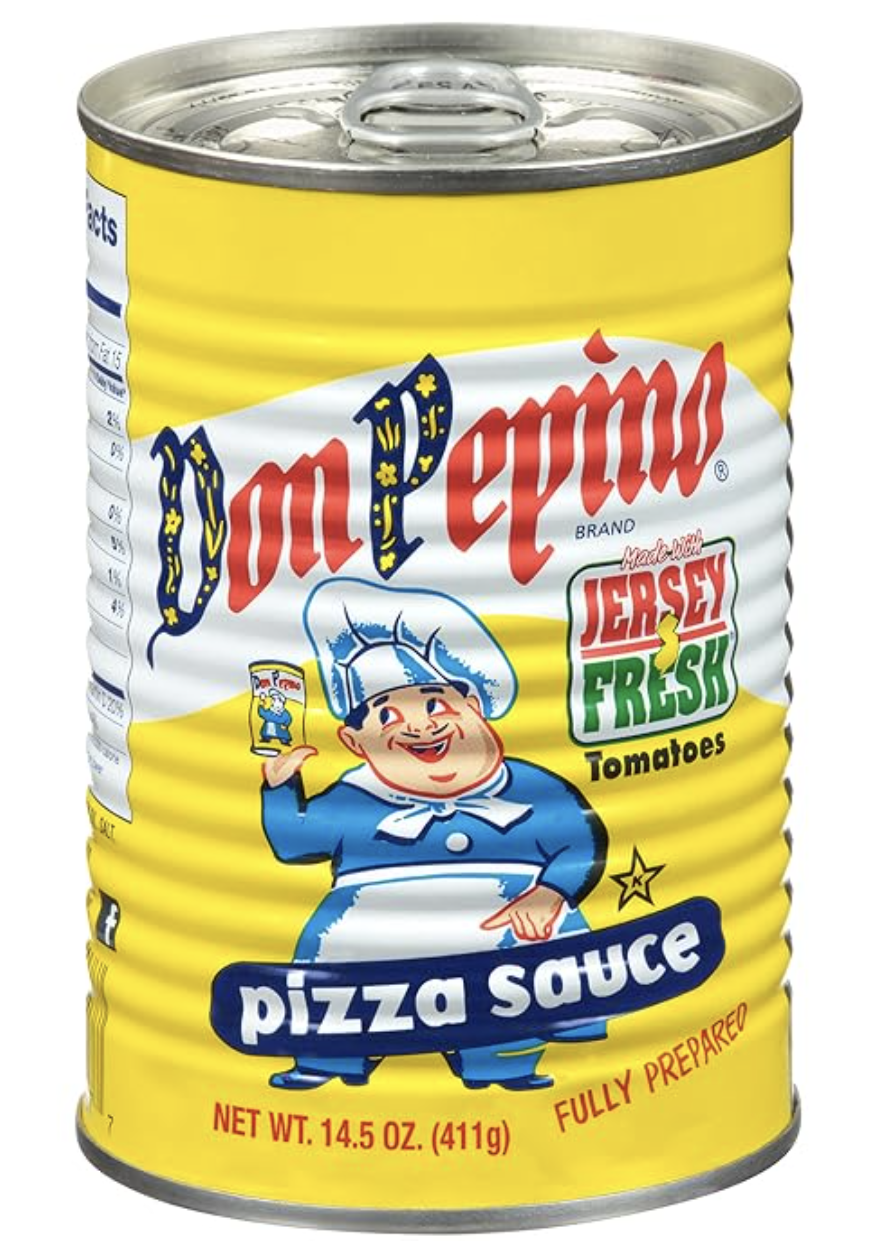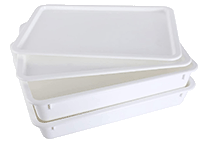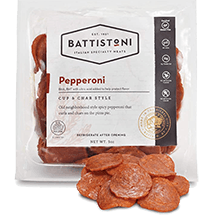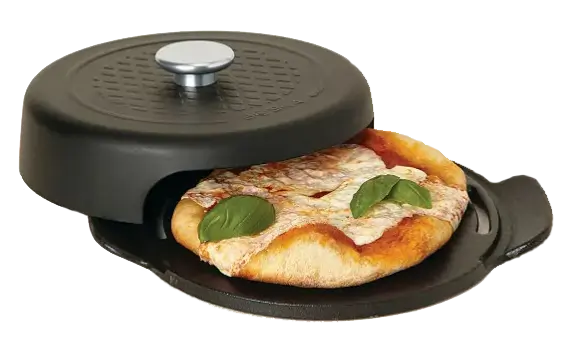When it comes to making pizza at home, one crucial ingredient is the pizza sauce. The foundation of a delicious pizza, this tomato-based concoction often has a mixture of flavors, including herbs like oregano and basil. An important question often arises for pizza lovers: how long is pizza sauce good for in the fridge? Understanding the shelf life of pizza sauce in the fridge can help you avoid wasting good sauce and ensure the best quality taste for your homemade pizza creations.
The longevity of pizza sauce mainly depends on whether it’s homemade or store-bought. Homemade pizza sauce typically lasts for five to seven days when stored in the fridge at a temperature between 35 and 40 degrees Fahrenheit. For store-bought pizza sauce, once opened, it remains good for up to a week if properly refrigerated, but unopened, its quality can last up to 18-24 months when stored at room temperature. To determine whether the sauce is still good to use, it’s essential to identify signs of spoilage and practice proper storage habits.
Key Takeaways
- Homemade pizza sauce has a fridge life of 5-7 days, while opened store-bought varieties last up to a week.
- Checking for signs of spoilage can help ensure you’re using good-quality sauce on your pizza.
- Proper storage and refrigeration techniques can maximize the shelf life of pizza sauce.
Table of Contents
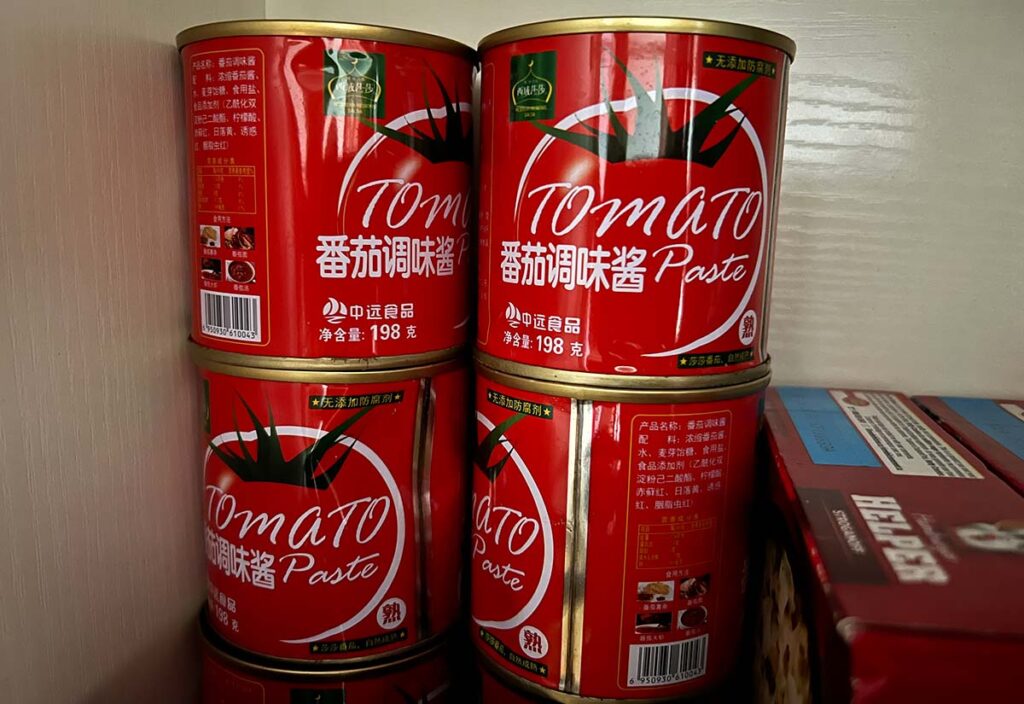
Understanding Pizza Sauce Preservation
Factors Affecting Shelf Life
As a cooking enthusiast, I know that the shelf life of pizza sauce in the fridge depends on several factors. First, the type of pizza sauce plays a role in its longevity. Store-bought pizza sauce usually lasts longer than homemade sauce, due in part to added preservatives. In general, an unopened store-bought pizza sauce can last 18-24 months at room temperature, whereas opened store-bought sauce and homemade sauce should be used within 7 days when refrigerated.
Secondly, the ingredients in the pizza sauce can affect its shelf life. For instance, a sauce made with fresh herbs, vegetables, and meats may not last as long as one made with processed ingredients and added stabilizers.
Lastly, the temperature and humidity in your refrigerator will also influence how long your pizza sauce remains fresh. The ideal temperature range for storing pizza sauce is between 35°F and 40°F.

Significance of Proper Storage
I cannot emphasize enough the importance of proper storage when it comes to preserving the quality and safety of your pizza sauce. To extend the shelf life of refrigerated pizza sauce, make sure to store it in an airtight container or seal the jar tightly to prevent bacteria and contaminants from entering.
For an organized visualization of data, I’ve prepared a table below to help you determine how long your pizza sauce may last under various conditions:
| Type of Pizza Sauce | Room Temperature (Unopened) | Refrigerated (Opened) |
|---|---|---|
| Store-bought | 18-24 months | 7 days |
| Homemade | N/A | 5-7 days |
Remember, following these guidelines can help you make the most of your pizza sauce’s freshness and taste, ensuring that your dishes always have rich and robust flavor.
Storing Homemade Pizza Sauce

Refrigeration Techniques
When storing homemade pizza sauce in the fridge, it’s important to keep the temperature between 35 and 40º F. This will ensure that the sauce stays fresh for about 5 to 7 days. I recommend placing the sauce in an airtight container with a good seal to prevent any air from entering and potentially spoiling the sauce.
Here are some tips for proper refrigeration:
- Use a clean container: Make sure the container is clean and sanitized before adding the sauce.
- Label the container: Mark the date on the container to easily track the freshness of the sauce.
- Store away from strong-smelling foods: As some flavors can be absorbed by the sauce, it’s a good idea to keep it away from strong-smelling foods.
Freezing Homemade Sauce
If you wish to store pizza sauce for a longer period, I recommend freezing it. Here’s a step-by-step guide on how to properly freeze your homemade pizza sauce:
- Allow the sauce to cool down completely.
- Pour the sauce into an airtight, freezer-safe container. Leave some space at the top for expansion.
- Label the container with the date and contents.
- Place the container in the freezer, where it can be stored for up to 3 months.
Remember to thaw the sauce in the refrigerator or use the defrost setting on your microwave before using it on your homemade pizza.

Ingredients’ Impact on Freshness
The ingredients used in your pizza sauce recipe can affect how long it stays fresh in the refrigerator or freezer:
- Tomato-based sauce: These sauces typically last around five days in the fridge.
- Cheese-based sauce: Dairy products tend to have a shorter shelf-life, so cheese-based sauces may spoil faster than tomato-based ones.
- Acidic ingredients: The addition of ingredients like vinegar or lemon juice can increase the sauce’s acidity, which may help to preserve it for a longer period.
Keep in mind that the freshness of the ingredients used in the recipe will also impact the overall shelf-life of the pizza sauce. To ensure a longer storage period, use fresh, high-quality ingredients when making your homemade pizza sauce.
The Lifespan of Store-bought Pizza Sauce

Reading the Label
When it comes to determining the lifespan of store-bought pizza sauce, I always start by checking the label. The expiration date provided by the manufacturer is a good indicator of how long the sauce will retain its quality. Different brands may have varying shelf lives, so paying attention to the label is important. It is worth noting that the expiration date refers to the sauce’s quality, rather than its safety, so it may still be safe to consume if properly stored after this date but might not taste its best.
Unopened vs Opened Jar
The shelf life of store-bought pizza sauce can differ significantly between unopened and opened jars. For unopened jars, the sauce can typically last up to 18-24 months when stored at room temperature. However, once the jar has been opened, its longevity decreases considerably.
Here are some general guidelines on how long opened pizza sauce can last in the fridge:
- Most store-bought pizza sauces: up to 7 days
- Some brands: up to 2 weeks
The opened sauce should be stored in a well-sealed container to retain its freshness and prevent spoilage. The fridge’s temperature should be consistently kept between 35 and 40 degrees Fahrenheit.
In summary, the best way to determine the longevity of pizza sauce is to read the label and store it properly, taking into account whether the jar has been opened or not. By following these guidelines, you can enjoy your favorite pizza sauce while ensuring it remains fresh and safe to consume.
Identifying Spoilage in Pizza Sauce
Visual and Olfactory Signs
When checking for spoilage in pizza sauce, the first thing I do is examine its appearance and smell. If there’s any presence of mold, it’s an immediate indication that the sauce is no longer safe to consume. Mold can appear in different colors, such as green, white, or black, and may show up as fuzzy patches on the surface.
In addition to mold, I look for any changes in the color or consistency of the sauce. If pizza sauce turns darker or appears watery or separated, it could be a sign of deterioration. As for the odor, fresh pizza sauce should have a pleasant tomato aroma with hints of herbs and spices. If I detect a sour, putrid, or even an unusually strong smell, that could indicate spoilage.
Taste Test Protocol
If the visual and olfactory signs don’t show any indication of spoilage, I proceed to the taste test. To ensure safety during this step, I follow a taste test protocol:
- Hygiene: Wash hands and utensils before testing to prevent any contamination.
- Portion Control: Take a small amount of the pizza sauce with a clean spoon and place it separately onto a plate or bowl.
- Examination: Observe the sample closely for additional visual signs that might have been missed earlier.
- Taste Testing: Give the sample a small taste, paying attention to any off flavors or unusual tastes that may signify spoilage.
It’s essential to remember that if I’m uncertain about my pizza sauce’s freshness after these steps, it’s safer to err on the side of caution and discard it. Using spoiled pizza sauce can lead to health risks such as food poisoning or digestive problems.
Pizza Sauce Storage Containers
Choosing the Right Container
When it comes to storing pizza sauce in the fridge, I always prioritize choosing the right container that can maintain the quality and freshness of the sauce. Some of the best options I can recommend include:
- Airtight container: Using an airtight container is my top choice as it effectively prevents any air exposure and seals in the freshness. It also helps in avoiding any cross-contamination with other items in the fridge.
- Glass jar or mason jar: Another excellent option I frequently use is a glass jar or mason jar with a tight-fitting lid. These containers offer durability, and their non-porous surface prevents the absorption of odors from the fridge. Mason jars are also known for having excellent sealing properties, ensuring that the pizza sauce remains fresh for a longer time.
- Bowl with a tight lid: In situations when I do not have access to the above options, I use a bowl with a tight-fitting lid. Although this may not provide the best seal, it is still a suitable choice for short-term storage of pizza sauce.
| Container Type | Pros | Cons |
|---|---|---|
| Airtight Container | Best seal; prevents air exposure | Some materials can affect flavor |
| Glass Jar/Mason Jar | Durable; excellent seal; odor-resistant | Breakable; heavier compared to plastic containers |
| Bowl with Lid | Convenient; easy to find | Not the best seal; possible flavor absorption |
Impact of Air Exposure
Air exposure has a significant impact on the quality of pizza sauce. As a passionate cook, I always strive to minimize air exposure when storing my pizza sauce in the fridge. The reasons for this are:
- Oxidation: Air can cause oxidation, which leads to a change in the color and flavor of the pizza sauce. Over time, this process can considerably affect the overall quality of the sauce.
- Bacterial growth: Air exposure can also lead to an increased risk of bacterial growth in the pizza sauce, particularly if the container is not properly sealed or has been opened multiple times. Bacterial growth can cause the sauce to spoil and become unsafe for consumption.
- Dehydration: I’ve noticed that when pizza sauce is exposed to air, it may dehydrate and become thicker over time. This can make it less appetizing and harder to spread on a pizza.
By choosing an appropriate storage container and ensuring it is properly sealed, I can significantly reduce air exposure and increase the lifespan of my pizza sauce in the fridge.
Freezing Pizza Sauce for Extended Shelf Life
Best Practices for Freezing Sauce
When it comes to preserving pizza sauce for an extended period, freezing is an excellent option. By properly storing the sauce, you can maintain its texture and taste for up to 6 months. To achieve the best results, follow these simple steps:
- Transfer the sauce into a nonmetallic container: Before freezing, remove the pizza sauce from its original container and pour it into an airtight, nonmetallic container. This will prevent any unwanted reactions with the metal during storage.
- Portion the sauce: You may choose to freeze your pizza sauce in large batches or smaller portions, depending on your preference. Smaller servings can be easier to defrost and use as needed.
- Label and seal: To ensure the quality of the frozen sauce, label each container with the date of freezing. This will help you keep track of its shelf life and use it before it loses its optimal flavor and texture.
- Place in the freezer: Store the containers in the freezer at a consistent temperature. The cold environment slows down the degradation of the sauce, enabling you to enjoy it for an extended period.
Thawing After Freezing
To maintain the quality of your frozen pizza sauce, it’s essential to thaw it correctly. Follow these steps when you’re ready to use your sauce:
- Plan ahead: Transfer the container of frozen sauce from the freezer to the refrigerator the night before you plan to use it. Allowing it to defrost slowly and evenly in the fridge overnight ensures it retains its texture and flavor.
- Check for changes: Before using the defrosted sauce, inspect it for any noticeable changes in color or texture. If you spot any signs of spoilage, it’s best to discard the sauce and not use it on your pizza.
- Stir the sauce: Once completely thawed, give it a gentle stir to evenly distribute the ingredients and ensure consistency throughout the sauce.
By following these best practices for freezing and thawing your pizza sauce, you can preserve its quality and enjoy delicious homemade pizzas even months after making the sauce.
Alternative Uses for Leftover Pizza Sauce
From Pizza to Pasta
Pizza sauce isn’t just for pizza; I often find that it makes an excellent pasta sauce too. When I have leftover pizza sauce in the fridge, I quickly whip up some pasta dishes. One of my favorites is Penne Arrabbiata. It’s simple but tasty, with the pizza sauce adding a unique twist to the dish.
For a refreshing pasta salad, I mix leftover pizza sauce with cooked pasta, fresh vegetables, and a splash of balsamic vinegar. This results in a light, tasty meal perfect for warm days or as a side dish.
Another option is to make a hearty tomato soup. I love combining pizza sauce with some cream, a little extra seasoning like basil and black pepper, and warming it up on the stovetop. Voilà, a comforting soup for any cold day.
Creative Condiment Ideas
Leftover pizza sauce can be a versatile condiment. Some of the creative ways I like to use it are:
- Dipping sauce: As a dip, it works well with breadsticks, garlic knots, and even crudité. Simply warm it up or serve it cold, depending on the accompaniment.
- Bruschetta spread: I often use it as a flavorful base for bruschetta, topping it with chopped tomatoes, fresh basil, and a sprinkle of garlic or balsamic vinegar.
- Sandwich spread: Try replacing the usual mayo or mustard in your sandwich with leftover pizza sauce for an extra kick of flavor.
Here’s a little table to summarize the alternative uses I mentioned above:
| Use | Description |
|---|---|
| Pasta sauce | Enhance pasta dishes with leftover pizza sauce |
| Tomato soup | Combine with cream, basil, and seasoning |
| Dipping sauce | Great for breadsticks or fresh vegetables |
| Bruschetta | Flavorful base for tomato and basil toppings |
| Sandwich spread | Add a kick of flavor instead of mayo or mustard |
By utilizing leftover pizza sauce in these delicious ways, I always make sure none of it goes to waste.
Safety Concerns with Improper Storage
Understanding Foodborne Illness
I can’t stress enough the importance of proper food storage, especially with perishables like pizza sauce. Storing pizza sauce at the right temperature in the refrigerator can help keep it free of harmful bacteria that often cause foodborne illnesses. These illnesses may result from consuming food contaminated with pathogenic bacteria, such as Salmonella or E. coli.
Though most store-bought pizza sauces contain preservatives, they are still not immune to the dangers of improper storage. This is primarily because bacteria thrive in moist and nutrient-rich environments, which makes pizza sauce an attractive breeding ground when not stored correctly.
Temperature and Bacterial Growth
As I mentioned earlier, refrigeration plays a key role in slowing down bacterial growth. To ensure the safety and freshness of your pizza sauce, keep it consistently stored between 35 and 40 º F. This temperature range has been found to be effective in inhibiting the growth of most bacteria.
However, it’s still crucial to be mindful of how long the sauce stays in the fridge. Based on the search results, pizza sauce is generally good for up to 7 days in the fridge. Homemade pizza sauce may have a slightly shorter shelf life, lasting around 5 to 7 days.
By not leaving the sauce at room temperature for extended periods, and properly storing it in the fridge or freezer, we can significantly minimize our risk of food borne illness and ensure the sauce remains good for longer.
A quick recap of these crucial points:
- Store the pizza sauce in the refrigerator within 35-40º F range
- Unopened store-bought pizza sauce lasts for 18-24 months at room temperature
- Opened store-bought pizza sauce is good for up to 7 days in the fridge
- Homemade pizza sauce stays fresh for around 5-7 days in the fridge
By following these guidelines, we can safely enjoy pizza sauce while keeping health risks at bay.
Preservatives and Pizza Sauce Quality
When it comes to pizza sauce, one of the key factors that determines how long it lasts in the fridge is the presence and effectiveness of preservatives. From my research and personal experience, I’ve found that preservatives can be classified into two main categories: natural and artificial. To help you understand the differences between these types of preservatives and how they impact the quality of pizza sauce, I’ve explored this topic further.
Natural vs Artificial Preservatives
Natural Preservatives: Homemade pizza sauce often contains natural preservatives like vinegar, lemon juice, or salt. These substances help to inhibit the growth of microorganisms, which in turn, extends the sauce’s shelf life. From what I’ve seen, natural preservatives do a helpful job in preserving the freshness of homemade sauces, but they may not be as effective in preventing spoilage as their artificial counterparts. Homemade pizza sauce, stored in the fridge, typically remains good for 5-7 days, although this might vary depending on other factors like storage conditions and ingredients used.
- Vinegar
- Lemon juice
- Salt
Artificial Preservatives: In contrast, store-bought pizza sauces often contain artificial preservatives. These chemicals, such as sodium benzoate and potassium sorbate, work by restricting the growth of mold, yeast, and bacteria. While these artificial preservatives can be quite effective at preserving the sauce, they can also give it an extended lifespan in the fridge. Store-bought sauce generally lasts 7-10 days in the fridge once opened, and up to 18-24 months if unopened at room temperature. Although, it’s important to remember that while artificial preservatives can help maintain the sauce’s shelf life, its quality might still deteriorate over time.
- Sodium benzoate
- Potassium sorbate
I hope that by exploring the differences between natural and artificial preservatives in pizza sauce, you have gained a clearer understanding of their impact on sauce quality and fridge life. Remember to always pay attention to storage conditions and ingredients used to ensure you’re getting the most out of your pizza sauce.
Tips for Preserving Sauce Quality
Maintaining Freshness and Flavor
In my experience, there are a few key factors to consider in order to maintain the freshness and flavor of pizza sauce. I have found that the acidity level, presence of preservatives, and quality of ingredients all play a role in the sauce’s longevity.
To keep the sauce fresh and flavorful, I suggest using quality ingredients and minimizing the sauce’s contamination during preparation. When preparing homemade pizza sauce, make sure to wash your hands and work in a clean environment. Furthermore, I recommend minimizing temperature fluctuations by ensuring proper refrigerator settings. In fact, maintaining a fridge temperature between 35 and 40 degrees Fahrenheit (2-4 degrees Celsius) helps prevent sauce spoilage.
Sauce Storage Recommendations
Based on my knowledge and the search results, the storage recommendations for homemade and store-bought pizza sauces vary. For optimum results, I have compiled a list of suggestions for preserving the quality and freshness of pizza sauce:
- Proper Sealing: Always seal the sauce container or jar tightly to prevent air exposure and slow down the oxidation process.
- Refrigeration: Store the sauce in the refrigerator, maintaining the temperature between 35 and 40º F (2-4º C).
- Container: Use an airtight, preferably glass container, to store the sauce as it helps retain the flavor and slows down bacterial growth.
- Storing Time:
- Homemade sauce: I recommend using it within five to seven days.
- Store-bought sauce (opened): It should be good for up to seven days.
- Store-bought sauce (unopened): It can last between 18-24 months at room temperature; however, its quality may diminish over time.
By following these recommendations and focusing on maintaining freshness and flavor, I am confident that you can enjoy quality pizza sauce for an adequate amount of time.
Frequently Asked Questions
What is the shelf life of an unopened jar of pizza sauce?
An unopened jar of pizza sauce can last up to 18-24 months when stored at room temperature. Over time, the quality may diminish, but it doesn’t necessarily go bad. Proper storage, away from heat and sunlight, can help maintain its quality for longer.
Are there health risks associated with consuming expired pizza sauce?
Consuming expired pizza sauce can pose health risks, especially if it has become contaminated with mold or harmful bacteria. It’s essential to check for any off odors, altered texture, or visible mold before consuming pizza sauce to avoid potential health issues.
How long is pizza sauce good for in the fridge?
Homemade pizza sauce can remain fresh in the refrigerator for about 5-7 days when stored at temperatures between 35 and 40 degrees Fahrenheit. Keeping it in an airtight container can help extend its shelf life.
After opening, what is the recommended storage duration for brands like Prego and Ragu pizza sauce?
Once opened, store-bought pizza sauce such as Prego or Ragu can last up to 7 days in the refrigerator, provided it is properly sealed and stored. Regularly check for signs of spoilage, and discard it if you suspect it’s no longer safe to consume.
How can one identify if pizza sauce has spoiled?
Signs of spoiled pizza sauce may include an off smell, visible mold growth, or a change in texture or color. If you suspect that your pizza sauce has spoiled, it’s best to err on the side of caution and discard it.
Is it possible to extend the shelf life of pizza sauce by freezing it?
Yes, freezing pizza sauce is an effective way to extend its shelf life. Store the sauce in an airtight container or freezer-safe plastic bag, and it can last for up to three months in the freezer. When you’re ready to use it, thaw it in the fridge before heating and serving.

